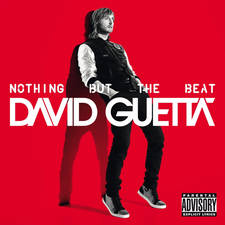Thousands Walk Out As Strike Begins
10 July 2014, 11:44 | Updated: 10 July 2014, 11:51
Up to two million public sector workers are going on strike, unions are claiming, threatening widespread disruption in a protest over pay.
One in eight schools could be forced to close and parents forced to find childcare or stay off work themselves as teachers join the industrial action.
The public sector strike has been billed as the biggest since 1926, and presents the most significant industrial relations challenge for the coalition Government since it came to power in 2010.
Refuse collectors, firefighters, home helps and librarians are protesting over pay, pensions and spending cuts. Also expected to strike are dinner ladies, parks attendants, council road safety officers, caretakers and cleaners, as well as civil servants.
The walkout threatens major disruption at schools and other council buildings, including courts and leisure centres. Household bins may not be emptied.
The Cabinet Office issued a statement at 7am saying the action would "achieve nothing" and said early indications were that most civil servants were turning up for work "as usual".
It estimated fewer than 90,000 members of the PCS union would not be working - a fifth of the civil service workforce.
However, Unison general secretary Dave Prentis dismissed claims there was no support for the strike and said the Cabinet Office's claim was a "little bit of window dressing" as the true picture would not emerge until later.
More than 200,000 teachers could take part in the action, according to the NUT.
Mother-of-three Katrina Poole, from Bristol, is unimpressed by the industrial action, which means she will have to make special arrangements for her children.
She said: "I know teachers work very, very hard, but they've got 13 clear weeks off school and maybe they could deal with this outside educational time."
The TUC said public sector workers are £2,200 worse off under the Government, while half a million council employees earn less than the living wage.
Teaching assistant Sharon Graham, from Northumberland, who took an extra two part-time jobs to make ends meet, said: "You can't survive with the bills you are getting in."
National Union of Teachers (NUT) general secretary, Christine Blower, said teachers "deeply regret" strike action.
"However, despite months in talks with Government officials, the real issues of our dispute over pay, pensions and conditions of service have not been addressed," she said.
In March the Government announced a 1% pay rise for public sector workers. However, Office for National Statistics figures show that public sector workers earn, on average, 14.5% more than those in the private sector.
The strike has triggered a row over the number of union members that must be balloted for a strike. The NUT strike ballot, which was held in 2010, saw just 27% of members taking part, while Unison said only 23% of its members voted.
On Wednesday David Cameron pledged to include changes to employment law in the Conservative manifesto to introduce a threshold in ballots, which some have suggested should mean 50% of union members must vote before a strike can take place.
(c) Sky News 2014

